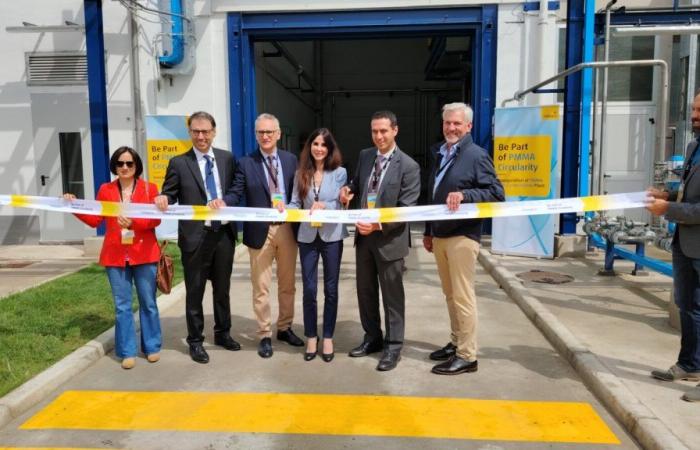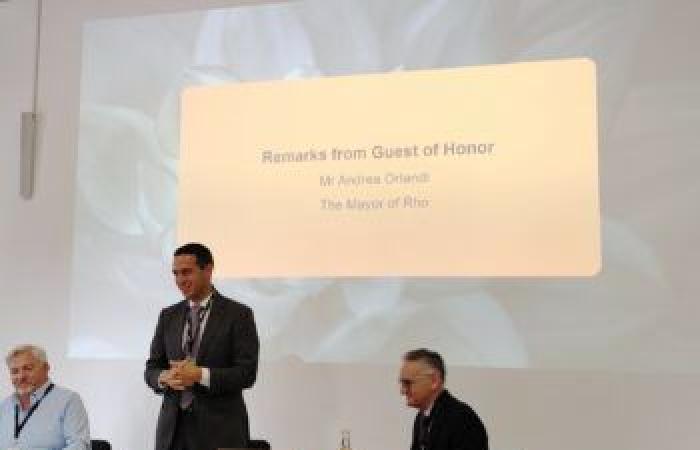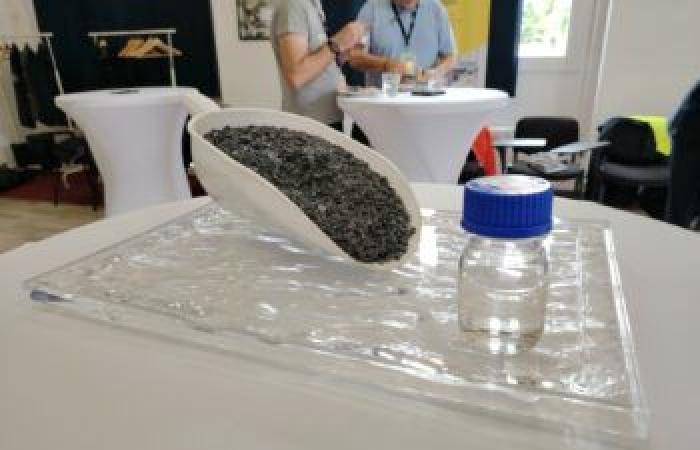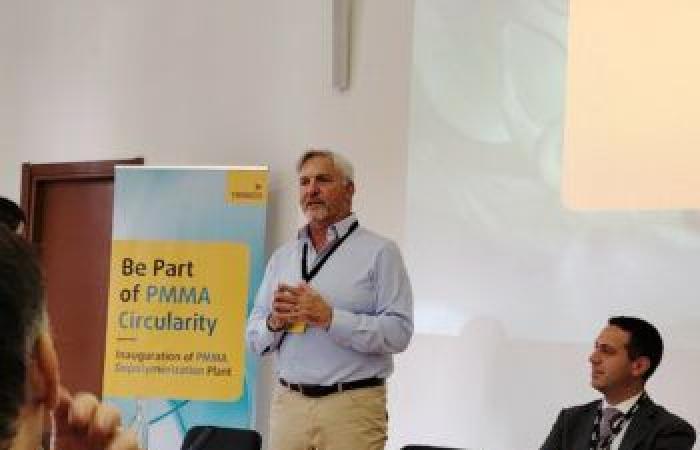Recycling plastic has always been a laborious and not particularly effective process, but the depolymerization method being tested at the Rho plant could change things
Rho – Recycle plastic. For those who deal with separate waste collection at home, it is practically child’s play. For those who deal with it on an industrial level, it’s a bit like the search for the mythical philosopher’s stone.
The Trinseo plant
Because of degradation of the raw material (it is not in fact recyclable infinite times like glass) and the fact that often, even once collected, it was easier and cheaper to incinerate it or bury it in landfill rather than recycle it, plastic has always had difficulty finding a true second life, unlike other materials such as glass or aluminum. However, all this could change, and Rho could be the one to deliver this little miracle of chemistry to the world, where at Trinseusit must be said, something is cooking.
“Sustainability here, unlike other companies, it is not a little project on the side of the production process. Sustainability enters the company’s production processes, maintaining a quality product and advantageous prices – We wanted to congratulate the mayor Andea Orlandi – This is the true sustainability to be sought, which allows us to remain on the market and do so by paying real attention to the environment“.
The mayor concludes: “De Gasperi said that ‘The real reforms are those that start from ourselves’ and Trinseo, before teaching others what sustainability and safety are, made a paradigmatic change, which was seen and which I greatly appreciated“.
The factory of what is now Trinseo, as the Site Leader recalled Andrea Origgi, has been in Rho since the 1930s, and has changed owners several times, also passing through the hands of Montecatini and Montedison. The one that has always remained unchanged is his chemical vocation. Today, with approximately 212 employees, 60 contractors and a surface area of 305,000 square metres, it deals with production of mmethyl ethacrylate epolimethyl methacrylate (commonly known as “plexiglass“), but it could soon revolutionize how these chemical compounds are produced.
A new method for recycling plastic
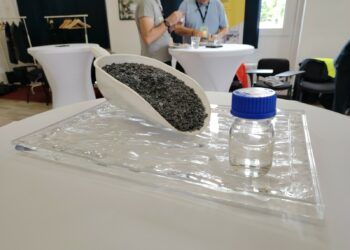 As also explained by the Global Sustainability Business Development Leader Aldo Zanettiplastic is already recyclable, through a crushing and melting process, which however creates a type of plastic that is reusable, but rich in impurities and components that they make the result more opaque and above all less and less recyclable as time goes on. It is also not feasible with CAST plasticswhich are very widespread.
As also explained by the Global Sustainability Business Development Leader Aldo Zanettiplastic is already recyclable, through a crushing and melting process, which however creates a type of plastic that is reusable, but rich in impurities and components that they make the result more opaque and above all less and less recyclable as time goes on. It is also not feasible with CAST plasticswhich are very widespread.
The method that Trinseo did not invent, but perfected, managed by machinery as impressive as it is secret, instead allows through pyrolysis (a very strong heating in the absence of oxygen), implemented by ovens powered by electricity, and a consequent rapid coolingOf transforming chopped polymers back into its fundamental componentsthus creating a resin which, once freed from some impurities, can be used to create new plastic objects.
The process, still in the experimental phase, not only could reduce CO2 production by 84%. necessary for the creation of a polymer and would also be usable with CAST plasticsbut it would significantly increase the recyclability of plastic in general.
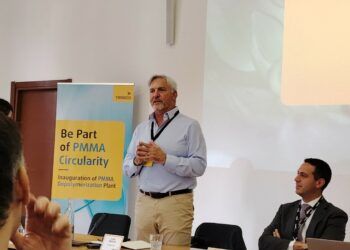 “In 2021 we started to create a vision for what Trinseo would be in the future, what our strategy would be, and Francesca (the Vice President Chief Sustainability Officer Francesca Reverberi ed) brought it to life, through all of you, through your help, you all played a role here – The President and CEO of Trinseo, the American, wanted to specify Frank Bozichdirectly appointing employees – What makes me most proud is that you are leading the world and the chemical industry towards solving one of the great problems of our time. The chemical industry can be the source of the solution to some of the world’s challenges, and this is a great example“.
“In 2021 we started to create a vision for what Trinseo would be in the future, what our strategy would be, and Francesca (the Vice President Chief Sustainability Officer Francesca Reverberi ed) brought it to life, through all of you, through your help, you all played a role here – The President and CEO of Trinseo, the American, wanted to specify Frank Bozichdirectly appointing employees – What makes me most proud is that you are leading the world and the chemical industry towards solving one of the great problems of our time. The chemical industry can be the source of the solution to some of the world’s challenges, and this is a great example“.
However, this remains only the first step of a more complex path. Currently, for example, the plastic waste necessary to complete this operation arrives in Rho from Uthrect, in the Netherlands, while the machinery, although built and active, is still in its experimental phase. However, the company said so committed to drawing up agreements with local suppliers for the collection of plastic waste, in order to also reduce the pollution factor that comes from transport.
He also expects, if everything goes well, to be able to start practice this plastic manufacturing technique at an industrial level between about two years.
Filippo Mairani
Continue to follow us on our social networks, click here!
Filippo Mairani
Literature student, lover of all types of stories, from the most fantastic stories to those solidly anchored in reality. This passion pushed him onto the path of journalism, a profession that leads to living and telling that great story that is everyday life.

